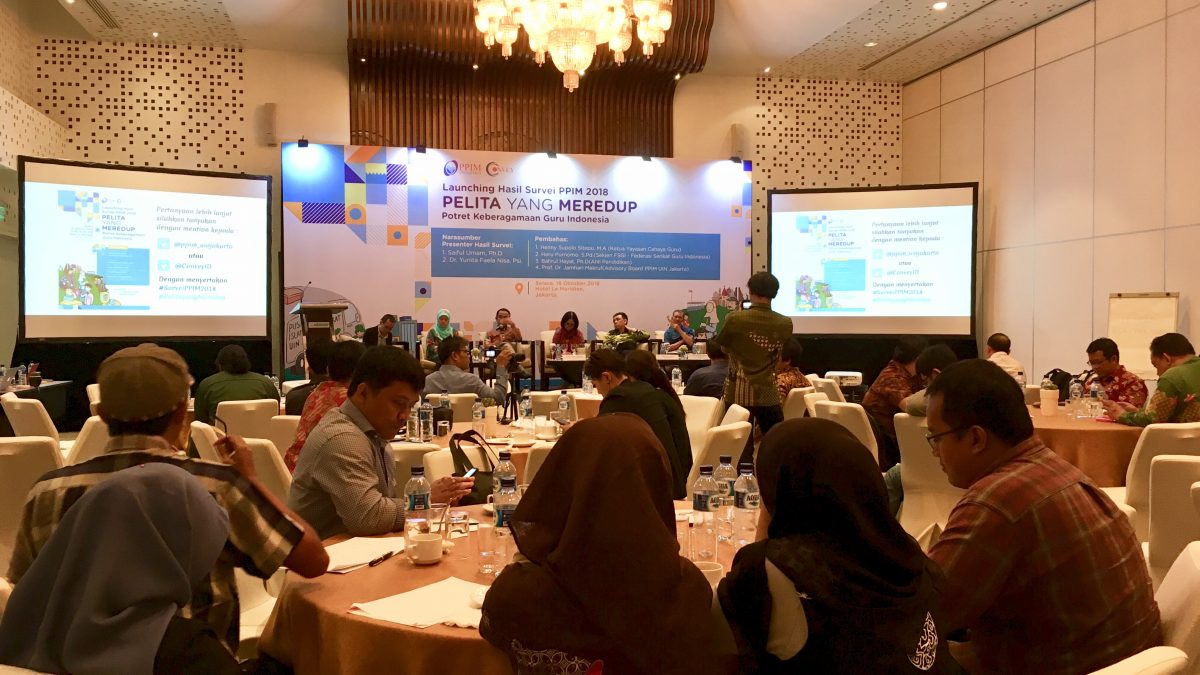PPIM Survey: 40.36 Percent of Teachers Agree Knowledge from the West Doesn’t Need to be Learned

Teachers in Indonesia Have Intolerant and Radical Opinions
October 18, 2018
These 3 Factors Trigger Intolerance and Radicalism in Teachers
October 18, 2018NU.OR.ID – Director of the Center for Islamic and Community Studies (PPIM) UIN Jakarta Saiful Umam revealed that Islamism is one of the things related to intolerance and radicalism among teachers in Indonesia.
Umam explained that Islamism is a view that emphasizes how Islamic law should be used as the main source of reference in all aspects of life, including in the political realm. Islam is understood as ‘the most perfect and all-encompassing’ so it must be the only source of reference for Muslims.
Therefore, this alumnus of the Mathali’ul Falah Kajen Pati Islamic College said that this is what led some teachers in Indonesia to agree that knowledge from Western countries does not need to be studied.
“As many as 40.36 percent of teachers agree that all knowledge is already in the Koran so that Muslims do not need to study science that comes from the West,” said Umam at the 2018 PPIM Survey Launching: National Survey on the Religious Attitudes of School Teachers / Madrasah in Indonesia in Jakarta, Tuesday (16/10).
According to Umam, this kind of religious perspective tends to be closed and exclusive in responding to the development of knowledge that is considered not to come from Islam.
Not only that, as many as 82.77 percent of teachers agreed that Islam is the only solution to all the problems currently facing society.
This data is based on the results of a survey conducted by PPIM from 6 August to 6 September 2018. The total sample of teachers surveyed reached 2,237 people from 34 provinces in Indonesia. The sample of female teachers was 1,335 people (59.79 percent), while male teachers were 898 people (40.21 percent).
This survey uses two measuring instruments to measure the level of intolerance and radicalism. First, the Implicit Association Test (IAT). This measuring tool is used to see the potential for teacher intolerance and radicalism implicitly. Second, a questionnaire. This is to explicitly assess intolerance and radicalism and the factors that influence them.




